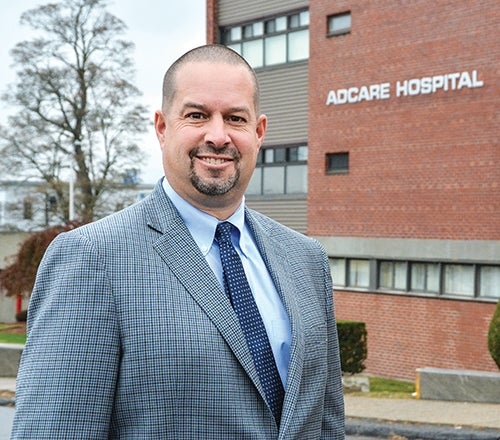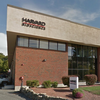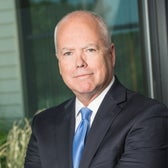AdCare exec: Services will improve after sale to public company

Since the 1980s, Worcester-based AdCare Hospital has provided drug and alcohol treatment in Central Massachusetts and beyond, under the steady guidance of the Hillis family.
But in 2018, the dynamics will change for the family-owned institution. Pending regulatory review by the Massachusetts Health Policy Commission, AdCare will be acquired by a Brentwood, Tenn.-based, publicly-traded addiction treatment company in the midst of national expansion.
According to Jeffrey Hillis, who leads AdCare as president and general counsel, the same pressures prompting acute care hospitals and physicians groups to align with larger partners drove the decision to partner with AAC Holdings, which operates its American Addiction Centers in eight states, including one in Rhode Island, but mostly in the South and West. Health care is transitioning to a “performance-based” model where providers are paid based on patient outcomes, and it’s hard for small organizations to compete because of the costly technology required to track and manage outcomes.
Shared commitment, stable leadership
That’s one of AAC Holdings’ niches, and Hillis said it’s one of the reasons the organization is an attractive partner. In addition, AAC’s specialty is substance abuse. Many other treatment providers focus on overall mental health, rather than on addiction primarily.
“They have a shared, focused commitment to helping people with substance use disorders as the primary diagnosis,” Hillis said, in an interview in November.
Hillis will lead AdCare as CEO after the sale is complete, and his father, David Hillis, who founded AdCare as an offshoot of the former acute-care Doctors Hospital in 1984, and currently serves as chief executive, will become a member of the AAC Board of Directors, according to Michael Cartwright, AAC’s CEO and founder.
“You have the exact same leadership running the organization today as you will next year,” Cartwright said.
Service levels won’t change, according to both Cartwright and Hillis. That includes those for Medicaid patients, which make up a sizeable portion of AdCare’s business. In fact, as much as 80 percent of patient revenue comes from government payors, whether Medicaid or Medicare, said Hillis. Meanwhile, AAC has yet to offer services to Medicaid and Medicare patients, making its foray into Massachusetts its first experience treating those covered by government health plans.
Diversification
“AAC was excited about this opportunity, both from a geographic as well as a payor diversification endeavor,” Hillis said. “To not have government pay as part of the company leaves a fair amount of folks in need.”
AdCare is anchored by the 114-bed, main hospital in Worcester, and operates an inpatient facility in North Kingstown, R.I., as well as outpatient facilities in Worcester; Boston; Quincy; North Dartmouth; Springfield; and in Warwick and North Kingstown, R.I. Once the merger is complete, those will likely operate as standard facilities mostly attended by people covered by HMO plans, said Dr. Tom Doub, AAC’s chief clinical and compliance officer. AAC also operates premium facilities, which have more amenities such as massage and equine therapy and are targeted at patients covered by PPO plans. While operations are expected to remain unchanged through 2018, AAC will consider how to improve services for more favorable outcomes, according to Cartwright. If more services are needed to accomplish that, the company may explore expansion, but there are no plans to grow for now.
“What can we do to make for better outcomes? Is that more services? I don’t know if that’s the answer,” said Cartwright, noting that Massachusetts has a relatively large number of providers. “The big focus for everyone on our board is, ‘Are we the best?’”
Financing research, technology
Cartwright said he and the Hillis family are kindred spirits in their approach to addiction treatment, and he’s known both David and Jeffrey Hillis for several years through the profession. In recovery himself, Cartwright has worked in the field for about 25 years, launching American Addiction Centers as a private, for-profit company in 2007. Knowing the company would need to raise substantial capital to stay competitive as an addiction treatment providers, Cartwright decided to take the company public in 2014. AAC trades on the New York Stock Exchange, with a stock price of around $9 at the end of November, and raised about $75 million in its IPO (initial public offering) in July 2015.
The infusion of cash has allowed AAC to conduct research projects on treatment efficacy and invest in state-of-the-art laboratory technology Cartwright believes is the best out there. Most addiction treatment companies can only dream of doing these things, given most are nonprofits with annual budgets around $5 million, according to Cartwright.
“We’re doing some really unique things that otherwise we wouldn’t have the resources or the capital to do,” Cartwright said. He noted the company is exploring ways to use technology, such as smartphones, to help manage patients’ recovery after they’ve left treatment, based on an AAC study including more than two years of outcomes data.
That edge, of course, will be available to AdCare facilities, provided the transaction is approved by regulators. AAC and AdCare filed a Notice of Material Change with the Massachusetts Health Policy Commission on Oct. 25, according to HPC spokesman Matthew Kitsos, and the HPC was still reviewing the proposed transaction by deadline. If the HPC determines the merger might increase healthcare cost and impact access in Massachusetts, a formal review will take place. Cartwright said he does not anticipate any hurdles.
A word of caution
There could be more interest among out-of-state addiction treatment providers to break into the Massachusetts market, especially since recent healthcare policy changes have made the Bay State a more favorable place to provide such treatment, said Kurt Isaacson, president and CEO of Spectrum Health Systems. For example, patients in need of inpatient treatment are guaranteed a minimum of two weeks of coverage under state law.
Spectrum, another Worcester-based provider, has been a friendly competitor of AdCare for years, Isaacson said. Isaacson called the Hillis family a class act, and he’s hopeful the quality of care at AdCare will remain unchanged after the merger.
But that doesn’t mean a change in ownership to a public company has no implications. Isaacson noted AdCare, while already a for-profit company, will now be under the magnifying glass of shareholders.
“For-profits tend to need to make a higher margin than a nonprofit does. So, there is pressure to cut corners,” Isaacson said.
In Massachusetts, out-of-state, for-profit Recovery Centers of America was scrutinized after a Boston Globe story exposed reports of poor patient care and staffing deficiencies at its Massachusetts locations in Danvers and Westminster, and the Department of Public Health halted admissions at the company’s Danvers location in August after a patient died.
The news made national headlines, and raised questions about the ability of for-profit companies (RCA is a private equity-backed company founded in 2014) to provide quality care while satisfying investors.
But Cartwright said he hopes people will recognize the combined experience of AAC and AdCare, and not be needlessly suspicious, just because the company trades on Wall Street.
“I hope people don’t say a pineapple is an orange,” Cartwright said. “We know what we’re doing.”













0 Comments